"Growing up with Six Siblings from Three Families: It Was Challenging and Unusual"
Mirav Zeiner is a talented photographer living in Beit Shemesh, but she cannot forget her past. In a fascinating conversation, she recounts her unique childhood and her experiences in Florida and New York. "Hashem spoke to me, and it was only He who brought me back to faith."
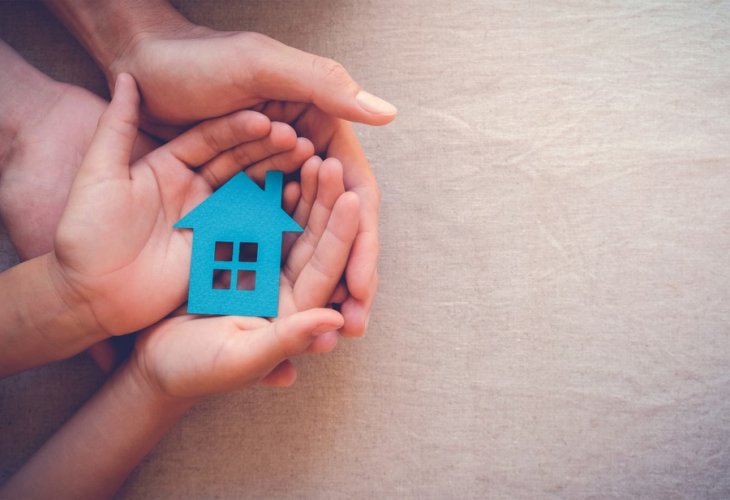 (Photo: shutterstock)
(Photo: shutterstock)Mirav Zeiner was only seven years old when her mother went to the hospital to give birth to her sibling and never returned. These images are etched in her memory, and she cannot forget them: "I remember the ambulance coming to take my mother to the hospital, the paramedics taking her away while my stepfather ran after them, explaining to me that Mom was going to bring us a baby. Mom indeed gave birth to a baby, but she never came home again."
Mirav notes that her biological parents separated, and when she was two years old, her mother married a man named Adam. "He was our stepfather, and after Mom passed away, he continued to raise us alone. We were a family of four children — me, my twin brother, and our two younger siblings. I highly appreciate Adam for taking responsibility for us. He could have easily sent us to an orphanage or boarding school, but it was clear to him that he would not abandon us."
One Large Family
Mirav remembers the time after her mother’s passing as very confusing. She recalls her dad ("yes, I call him Dad") working three tiring jobs, taking care of the kids every afternoon, picking lice out of her hair at four in the morning, and searching for her during Purim in his army boots with Pippi Longstockings.
About a year later, another huge change occurred when Adam married a woman named Shoshi, who had two children of her own. "The truth is their meeting was thanks to my late mom," Mirav recounts. "When my mom met Shoshi, she jokingly told Dad, 'Look what a Hungarian I've found for you.' Apparently, words have magic, and eventually, Adam indeed married Shoshi. So, we moved in together—a large family of six children from three families. It was always complicated to explain that to others."
It must have been very complex growing up in such a family...
"It's very complex, not easy, and also unusual," Mirav replies. "I appreciate my stepparents very much because they worked hard in those years to give us the maximum. Later, the seventh daughter in the family was born — she had the best time because she was born into a different reality than all of us.
"Nevertheless, at no point did my parents have extra money, but they taught us to enjoy free experiences—we would go out to pick mushrooms in the Ben Shemen Forest, go on hikes in open spaces, and take care of the animals we brought home. Our house became a home of rules—there were certain times for meals and sleep, really organized rules. There wasn't a choice. In general, I learned a lot from my parents, and on the day I went out on my own, I knew how to do everything, and all thanks to them."
Do you think you appreciated enough what they were doing for you?
"I'm sure we didn’t thank them enough. As a child, I sometimes felt like I was treated unfairly and was sure they loved my siblings more than me. I envied my friends who lived in regular homes—with a mom and dad that were just theirs. Now, in hindsight, I understand that even in 'regular' homes, there are quite a few challenges, and there’s always the phenomenon of parents feeling different chemistry with one child over another. Even as a mother, I know I have different chemistry with each of my children on different topics. That's life."
"Suddenly I Realized Hashem Was With Us"
Throughout her life, Mirav encountered talks about Hashem’s presence in the world. "Every time, my response was always the same — 'If Hashem really is around, I want to meet Him and ask what wrong I did to Him and why He took my mom.' I never thought a day would come when I would genuinely acknowledge His existence and believe in Him. As a child, when I saw religious Jews, I was afraid. They frightened me, seemed threatening, and I didn't even try to think about what they had to offer."
After Mirav completed her military service, she felt she had nothing more to seek in the country. "I decided to fly to work in Florida. My plan was to save money to fly to India, join a monastery, and just never leave," she says.
But Hashem had other plans for her. "When I got to Florida, I found work as a sales girl on mall carts, and along with some Israeli friends I met there, we marketed various products. We were the only Israelis in the place; of course, we didn't have visas. One day, I woke up with a strong feeling that something bad was going to happen. When I got to work, I found myself looking up at the sky, or more precisely, at the mall ceiling and asking that mysterious entity — 'Hashem, give me a sign about what I should do.' Shortly after, we received a phone call from colleagues at a nearby mall informing us the FBI were there, and they were being investigated. At that moment, I informed my boss that I was leaving, and along with some friends, I just left. This was the period after the 9/11 attacks, and they took foreigners who entered America illegally very seriously."
Mirav realized she couldn’t stay in Florida much longer and decided to travel to New York. After hours of traveling on the highway with her friends, suddenly police cars stopped them, took them out of the vehicle, and started questioning them. "We eventually managed to escape the interrogations, as our answers were consistent, and no contradictions were found."
And why didn't you return to Israel?
"Today, I know the real answer — Hashem wanted me to meet my husband, who is an American citizen. Those days, of course, I didn’t know that, and I was convinced I stayed because I couldn’t bring myself to return to the country. I felt the country was almost disowning me."
During that time, Mirav landed a job at a diamond company and began to associate with other Israeli teens also on a path toward Judaism, renting rooms in a particular building. "On Shabbat, we would eat meals together with the hosts and talk among ourselves in Hebrew. Each day, I began to feel that Judaism interested me and held something significant. I was afraid to express these feelings, but something inside had already awoken."
One day, Mirav left her home and, while driving on the road, her car skidded, and she crashed into a luxury jeep. "Neither I nor the jeep driver was hurt at all, but the jeep suffered substantial damage, and the estimated value of the damage was $2750. For a girl like me, it was clear that this was an amount I couldn’t even imagine obtaining, especially without insurance since I had left it in Florida. From that moment, I wandered around like a mouse in a trap, dealing only with thoughts about how I would cover the damages and get money."
Then, something happened that she had never experienced in her life. "Suddenly, for the first time in my life, I started to pray to Hashem," she recounts. "I spoke with the Creator of the world and simply begged Him, 'Do something, I have nowhere to get the money from, relieve me from this burden.'"
A short time later, the unbelievable happened, and Mirav received a call from the insurance company in Florida who informed her they would cover the damage without her needing to participate in the costs at all. "For me, it was a real shock," she recalls, "It seemed like the craziest thing in the world — I pray, and someone responds. I stood for a few minutes in amazement, then whispered to Hashem, 'Thank you, thank you, thank you.'"
Shortly thereafter, her mother's yahrzeit arrived. "The friends I lived with in the apartment convinced me to read Tehillim for the elevation of her soul. Clearly, if this had happened before the insurance money story, I wouldn’t have considered listening to them, and I would have mourned as every year. But my friends convinced me: 'Do something for her, something for the elevation of her soul,' and so I found myself taking a Tehillim book and, for the first time, twenty years after Mom passed away, reading Tehillim for her."
"I Felt Hashem Speaking to Me"
Towards the summer months, her friends left America, and Mirav stayed. During those days, she met Ilan, who would later become her husband. He was already on a path of returning to Judaism, wearing a large kippah on his head. Together, they found themselves getting closer to Judaism step by step, even trying to observe Shabbat.
At some point, she flew to Israel, needing medical treatment, and to her surprise, Ilan decided to follow her and propose marriage in the Holy Land.
What did your parents say about the groom and your return to Judaism?
"Dad Adam was initially very startled by my return; at first, he didn’t even want to talk to me and claimed that I went astray. Mom Shoshi accepted it with more understanding. Today, now that I am married and the mother of eight children, they both tell me all the time that they are sure my return to faith was only for the good. They are very happy for the way I've chosen."
After the wedding, Ilan and Mirav lived for a few years in New York, with Mirav taking the time to attend Torah lessons at a Midrasha, host girls getting closer to Judaism, and come closer to the Creator.
"Every step I took was solely from the heart. It wasn't someone external who brought me back to faith, but only my personal conversations with the Creator," she shares, "Each time, I felt that I saw signs or people talking about a particular subject, and I understood that’s exactly where I needed to strengthen. Everything was only out of the heart and out of love."
"I Always Feel Like a Ba'alat Teshuva"
About ten years ago, Ilan and Mirav moved to Israel, to the city of Beit Shemesh, where it’s hard to spot their past. "My husband came to Israel wearing black-and-white and spends half his day learning in a kollel; I became a photographer specializing in children’s photography and at the same time raise my children," Mirav shares. "When we arrived in the country, we had three children — twin daughters and a girl, and in Israel, three more children were born to us and another pair of twins. So, we became a large and blessed family with eight children, may they be healthy."
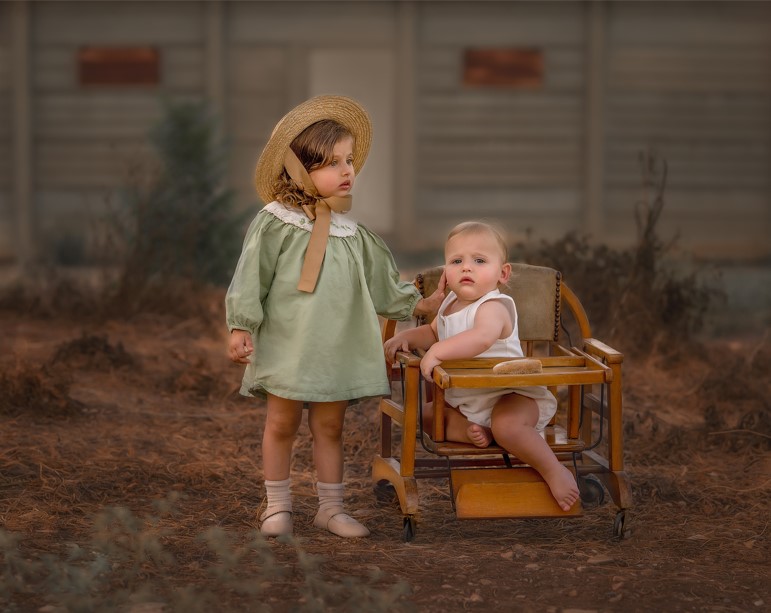 Photos by Mirav Zeiner
Photos by Mirav Zeiner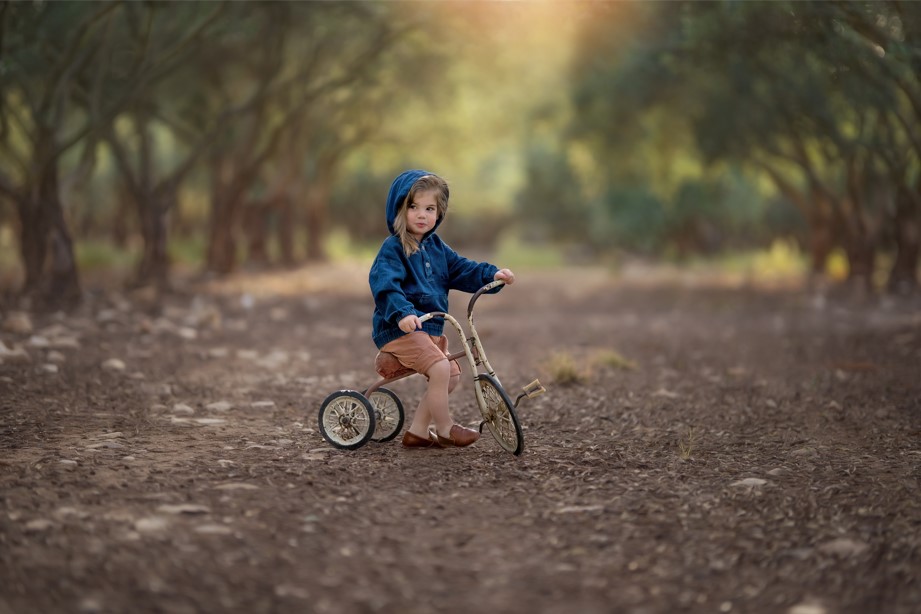 Photos by Mirav Zeiner
Photos by Mirav Zeiner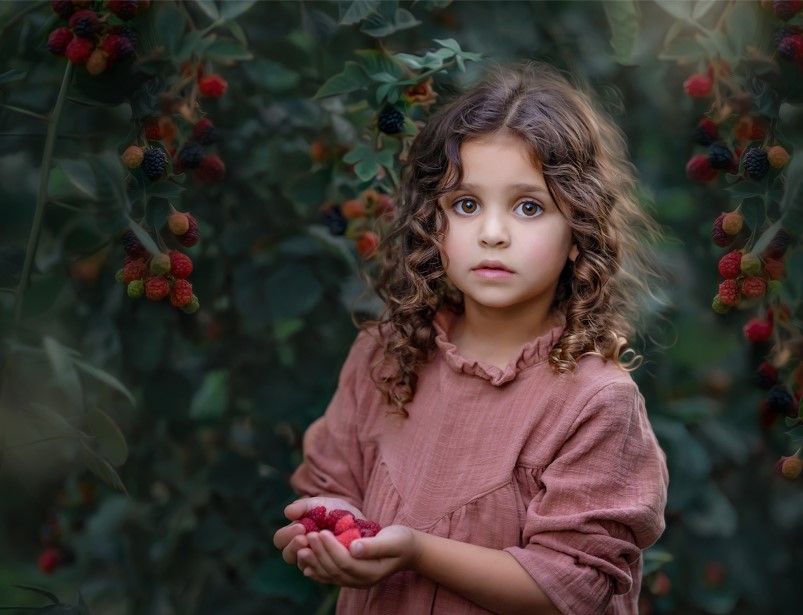 Photos by Mirav Zeiner
Photos by Mirav Zeiner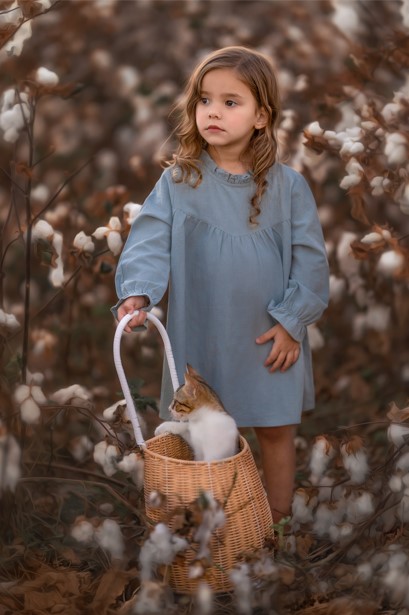 Photos by Mirav Zeiner
Photos by Mirav ZeinerAfter years of being close to Judaism, do you still feel like a ba'alat teshuva?
"I always feel like a ba'alat teshuva; I can't erase my past nor do I want to, but the children are already growing up differently. They are part of an amazing Charedi community, learning in the best institutions and enjoying so many things I didn’t have as a child. I am so happy for them."
Mirav pauses for a moment, then adds: "Looking back, I think even the challenging childhood I experienced played a big role in what encouraged me to draw closer to Judaism. After all, the process of returning to faith is very scary, but because of what I went through as a child, I felt I wasn't afraid of anything. I saw how my mom passed away at 27, without any risk factors or medical history, and I began to understand that our lives depend solely on Hashem’s will, so why should we even develop fears or worries?
"This accompanies me even as I raise my children, a role that is also accompanied by fears for many women, whereas I learned to simply let go. I wholeheartedly believe that Hashem takes care of my children, who are also His children, and I am sure He will grant them a bounty of goodness, and above all, may we all merit to bring Him continuous joy."

